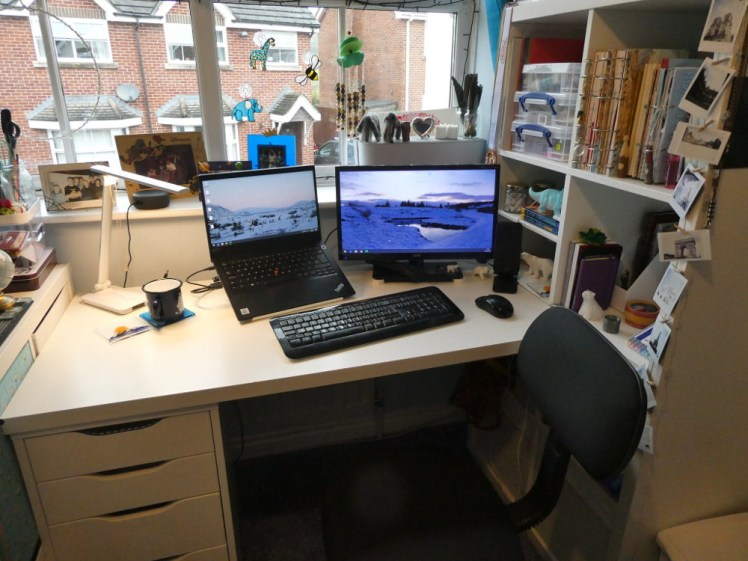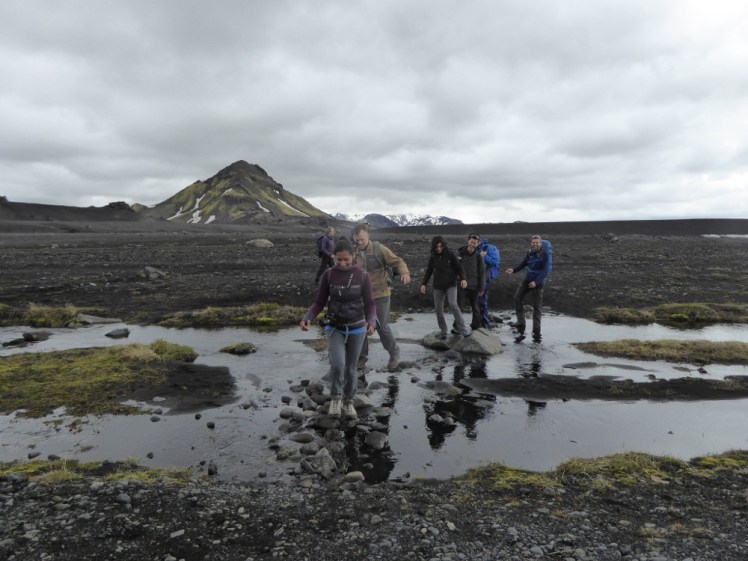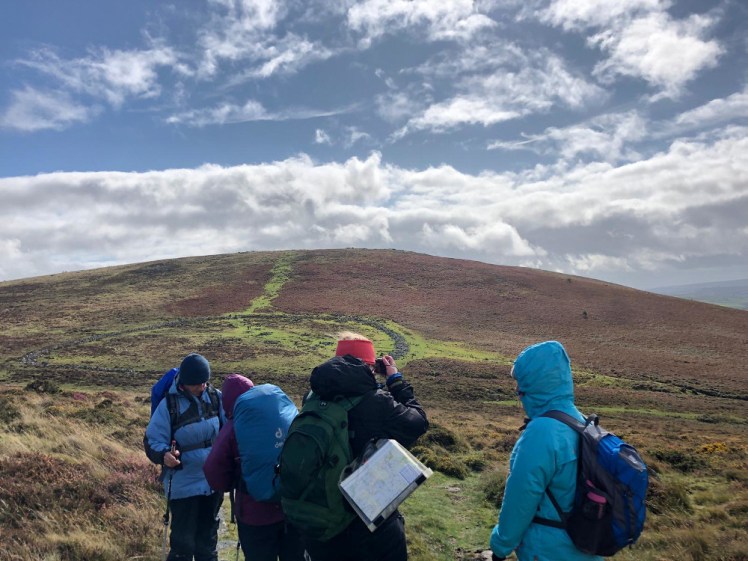“How to become a professional adventurer”, or how to make adventuring your job and career, is something that’s being discussed on my Twitter at the moment. Well, “at the moment” as of time of writing. Sometimes I’m still writing posts the day they’re published. Sometimes I’m doing them three four five nearly six months in advance. Guess which this is?
Of course, you’d think advice like this would come better from someone who actually is a professional adventurer. I’m a researcher and analyst and Brown Owl who writes an outdoors & travel blog and fails to post on Instagram for days on end and spends 90% of her waking hours sitting at her desk. But because I’m a researcher and analyst, I’m a practical and pragmatic person who looks at cold hard facts and reality and sees where they lead and that’s why I may be able to offer actual usable advice here.

I’d just like to add that I started to write this back in July, long before actual professional adventurer Alastair Humphreys released his book, Ask An Adventurer (affiliate link to bookshop.org which supports local bookshops rather than Jeff Bezos’s holiday fund). I have since read it and I’m still posting this because if you could never blog about things that shared subjects with actual published works, blogging would cease to exist. But for the record, I wrote this before it was released and definitely before I read it.
If you ask an actual professional adventurer how to become a professional adventurer, they’ll tell you things like “stop making excuses and just do it!”, “if I can do it, you can do it” and “you can make your dreams come true if you really want them enough” and that’s trite and meaningless. Especially if they’re coming from that particular subset of wealthy ex-Etonian Oxbridge adventurers. It’s nice advice but the rest of us simply aren’t operating in that universe and thus asking them is a total waste of our time.
Where is the money coming from?
Adventures are expensive, often eyewateringly so. I don’t have the money I’d need for a Great Expedition just sitting around and I bet you don’t either. If you’re the aforementioned kind of adventurer and especially if you’re an established known adventurer, you might be able to get someone to just hand over that kind of money to you. Sponsorships, grants, bursaries, they’re all a thing. But you’re not an established known adventurer, which is why you’re reading this, and neither am I. And that’s just covering expenses, it’s not making enough extra to pay the bills which is, after all, the purpose of having a job.
So “how to become a professional adventurer” is another way of phrasing “how do I get paid to do this?”.

Get a job
My first advice for would-be adventurers, therefore, is to get an ordinary boring job with a reliable salary. I know, no one looking to become an adventurer wants the advice “get a job” but the cornerstone is cold hard filthy cash and a job is the most straightforward way of achieving that.
With that salary, you can save for your adventure and quit your job the moment you hit your target. You can stay in your job permanently and keep building your funds up and adventure as a hobby, side hustle or just life fulfillment in your spare time and in your annual leave.
Or you can put it towards your “becoming an adventurer” fund.

Make adventuring your ordinary boring salaried day job
That’s your next option, earning the money to get your skills, training and qualifications in place ready to be an adventurer. You’re not going to find a boss who’ll pay you a monthly salary to mount great expeditions or row oceans or whatever else you’re dreaming of but you could become a mountain guide or an outdoor instructor or touring catamaran skipper or something like that. You get to spend your days doing adventurous things you enjoy and you get all the regular salary and annual leave benefits of an ordinary job. Halfway house between being an office drone and being a full-time adventurer.
A word of warning – you’ll probably have to invest in the right qualifications yourself before you can start – I looked into getting my Hill and Moorland Leader a while back and it would cost me anything between £520 and £700, not including travel, equipment, food and accommodation for my trainings nor the costs involved in logging 40 Quality Hillwalking Days and I’m probably still missing expenses. So that’s not a good investment for me personally but it might be for you. It’s not impossible that your would-be employer would fund your training but I think it’s unlikely, so that’s an up-front expense that might – you’ve guessed it – mean an ordinary job, at least for a while, for getting your ducks in a row for your adventuring job.

Being a professional adventurer actually means being lots of other things
And third, there’s being an actual career adventurer. I’ve already said you’re not going to find someone who’s going to pay you to go on adventures, so where the money’s actually coming from is you selling your adventure stories – writing books or articles, public speaking, YouTube, photography, being a TV personality and so on, and most likely a combination of several of those. Effectively, you’re going to have to become a storyteller and/or influencer. Actually being a professional adventurer means not actually being a professional adventurer for 99.9% of people. Even Edmund Hillary, undeniable ultimate adventurer, wrote eleven books.
The money has to come from somewhere and there are no money trees growing at the top of remote mountains or in the ferocious ocean. Freelancing gives you the most freedom to adventure as you will but you need a certain amount of determination, dedication, self-discipline, organisation and just plain luck to be able to turn it into a viable job that will pay the bills. And of course, your adventures need to be good enough and big enough and interesting enough that people want to read and listen and watch them. That’s the catch, really. You have to have adventures you love but they also have to be marketable to other people.
I suppose if your adventure is 100% entirely for you and not for an audience, you have to find a hook to make an audience want to know about it – market in a way that’s less about the adventure and more about what you got from it and what you and your adventure can offer to your audience, perhaps. Lessons in yourself and in life and philosophy, the sort of stuff you can turn into a Ted talk or motivational speech rather than “just” tales of adventure. Ta-dah! You’ve just made adventuring into the marketing and PR job you never wanted! And you’re probably going to have to do all of it all by yourself because I bet you’re not making enough money to employ an assistant to handle any of the admin. It’s such a fine line and it’s a line you have to find your own way to walk.
So if you, a currently-ordinary person, want to become a professional adventure, you’ll have to figure out how you are going to make money from your adventures, or whether you’re going to at all and then, having made your practical decisions, get out there and do it, whatever it is. And if you end up writing a book about whatever you do, why don’t you send me a copy?
(It’s easy to think that the great age of adventure, exploration and achievement is over. All the mountains have been found and climbed, we’ve mapped the world, there’s nothing new to discover. If you want a “first to…”, you’ve probably missed out by now. But if you’re desperate for that kind of notoriety, I’d point out that we know next to nothing about the world under our feet or under the sea. Cave exploration or the depths of the oceans, that’s where the discoveries are hiding. And on that note, I’d love to see the celebrity cave explorer, the Edmund Hillary of the underground, a man with a beard and wellies covered head to toe in mud.)